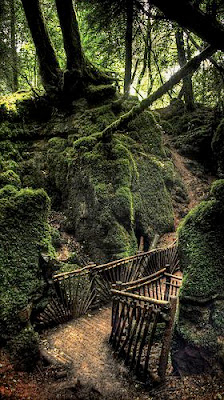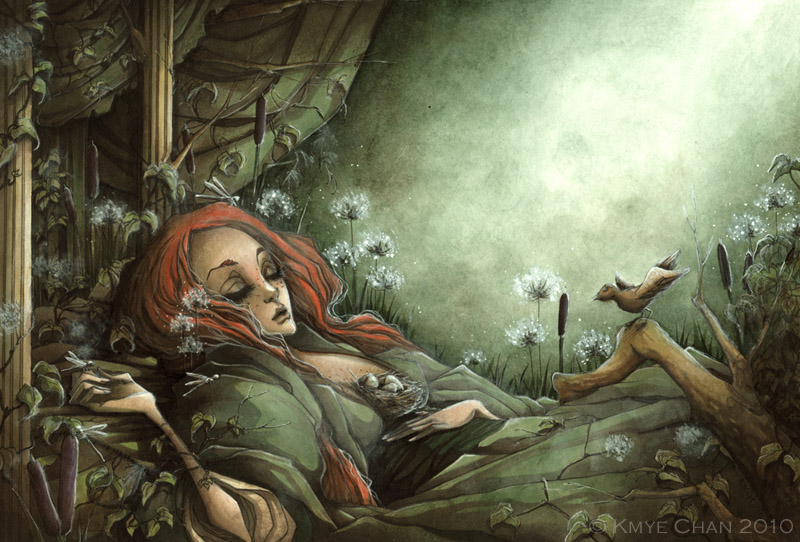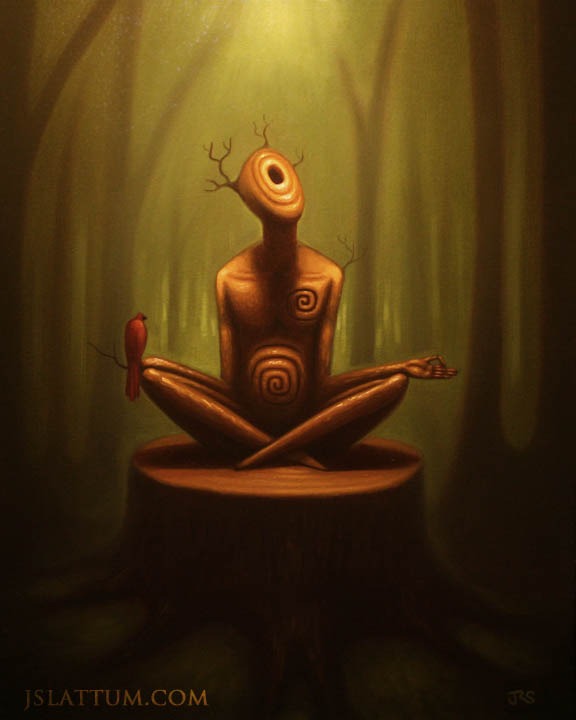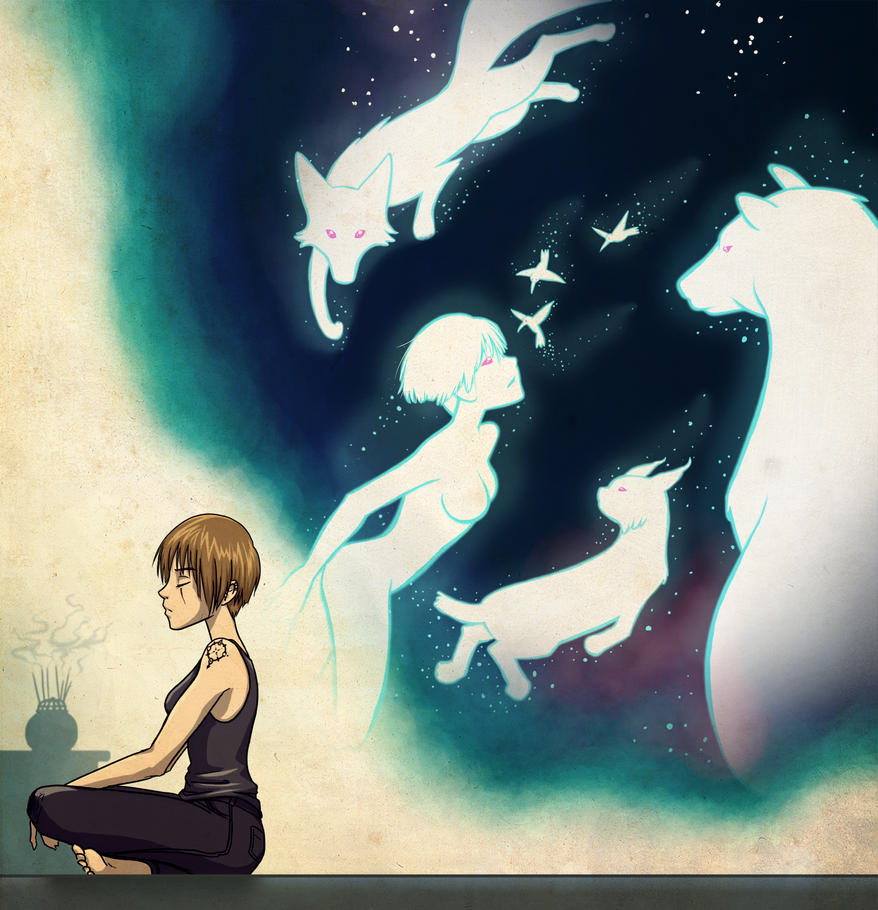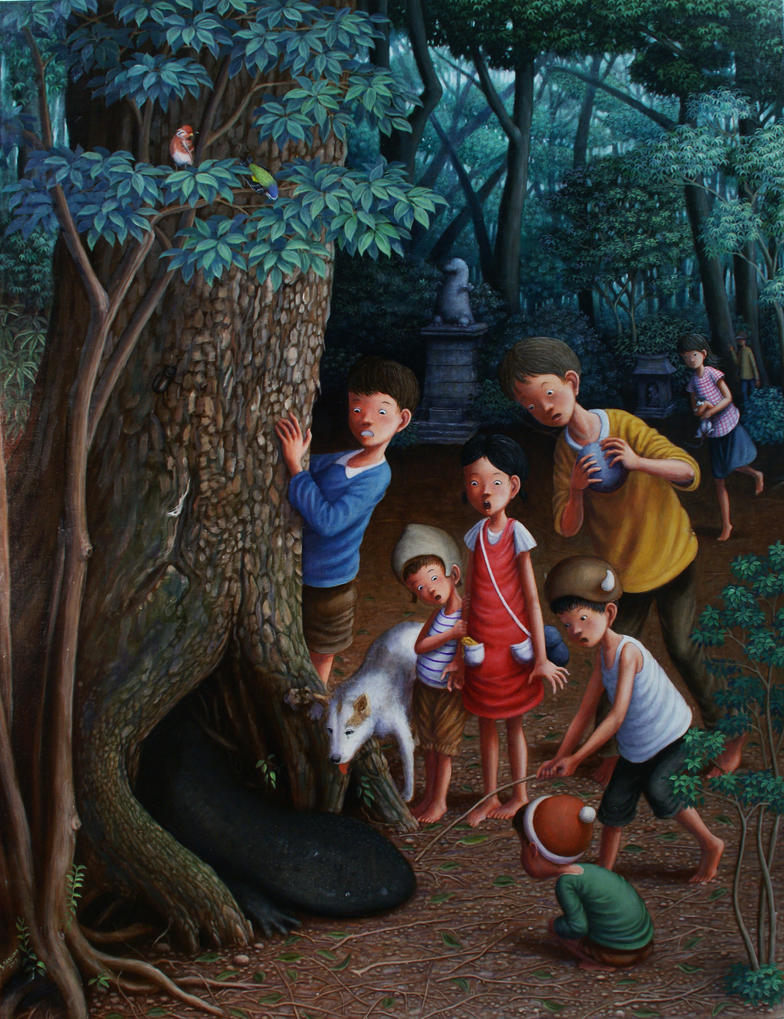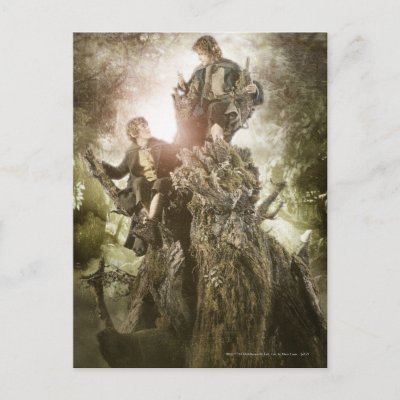It has begun. I have stepped off the beaten track and away from everything familiar. I heard my name called in the sound of the wind rushing through leaves, shaking branches, whispering to me spirit to spirit. It has been coming for a while, and despite the months of anticipation and preparation, the first step was still a hesitant one.
I needed to leave, I knew, in order to find something I have long been searching for. I'd been unfurling tentative feelers for the past six years, both outward and inward, and the time had come to try and answer some questions and explore ideas that had captured my imagination.
I am here to learn, to explore, and also to heal. I am here to work and to play. I am here to be alone with myself and engage in community.
 |
‘To know the woods and to love the woods is to embrace it all, the light and the dark -- the sun dappled glens and the rank, damp hollows; beech trees and bluebells and also the deadly fungi and poison oak. The dark of the woods represents the moon side of life: traumas and trials, failures and secrets, illness and other calamities. The things that change us, temper us, shape us; that if we're not careful defeat or destroy us...but if we pass through that dark place bravely, stubbornly, wisely, turn us all into heroes. ‘
And yet, despite all the fairy tale warnings, sometimes we're compelled to run to the dark of the woods, away from all that is safe and familiar -- driven by desperation, perhaps, or the lure of danger, or the need for change. Young heroes stray from the safe, well-trodden path through foolishness or despair...but perhaps also by canny premeditation, knowing that venturing into the great unknown is how lives are tranformed…
Sara Maitland compares the transformational magic in fairy tales to the everyday magic that turns caterpillars into butterflies. "[S]omething very dreadful and frightening happens inside the chrysalis," she points out. "We use the word 'cocoon' now to mean a place of safety and escape, but in fact the caterpillar, having constructed its own grave, does not develop smoothly, growing wings onto its first body, but disintegrates entirely, breaking down into organic slime which then regenerates in a completely new form. It goes as a child into the dark place and is lost; it emerges as the princess, or proven hero. The forest is full of such magic, in reality and in the stories."'
- Via Terri Windling -
|
If I have learnt anything from fairy tales, it is that you get nowhere in life without straying off the path, at least for a little while. The woods are there for you to lose yourself in, but, and this is the important thing, they are where we find ourselves again. We need the woods to become more than what we were.
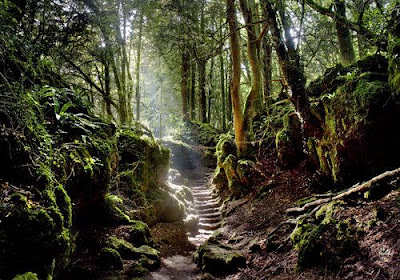 |
| ‘We need the woods—the metaphor and symbol of the woods, the mythology of the woods. But all stories begin in a real place—as breath and movement in a physical space—and soak up the colour and texture of that place. When the woods are gone, the metaphors lose their power, the stories cease speaking from the silence of the trees.’ - Via Unsettling Wonder - |
We need our woods, but once again, they are under threat. The Forest of Dean, my home for the next few months, had not escaped the attention of gas-hungry predators; luckily, in the last couple of days, it has emerged that the companies in question have decided not to explore for gas. This is a huge relief. Our green spaces are sacred resources simply for being green, and the benefits they bring to us as they are should never be undervalued.
I don't quite know what changes will occur, or what magic will happen here amongst the trees. But there's only one way to find out...
I don't quite know what changes will occur, or what magic will happen here amongst the trees. But there's only one way to find out...


